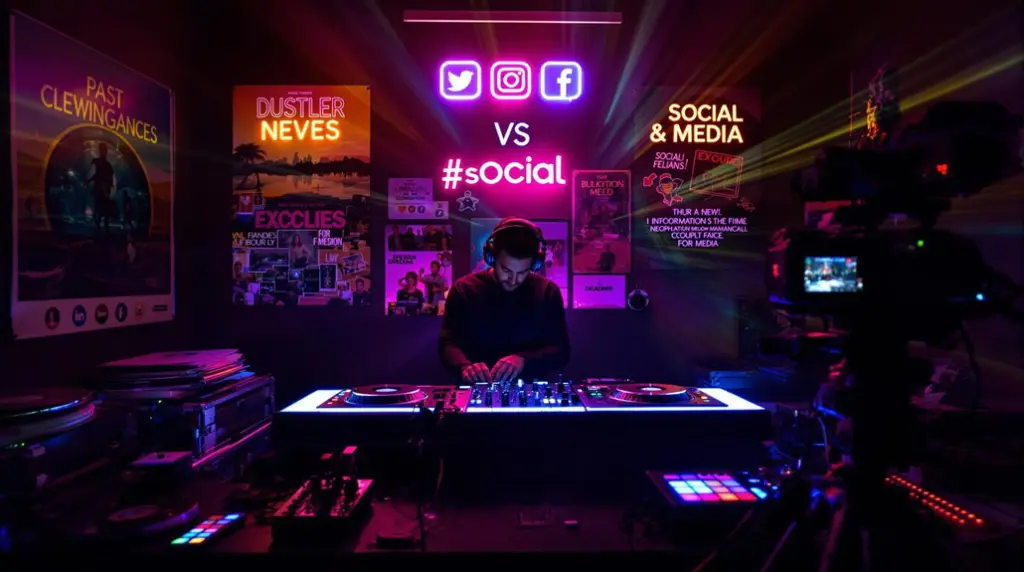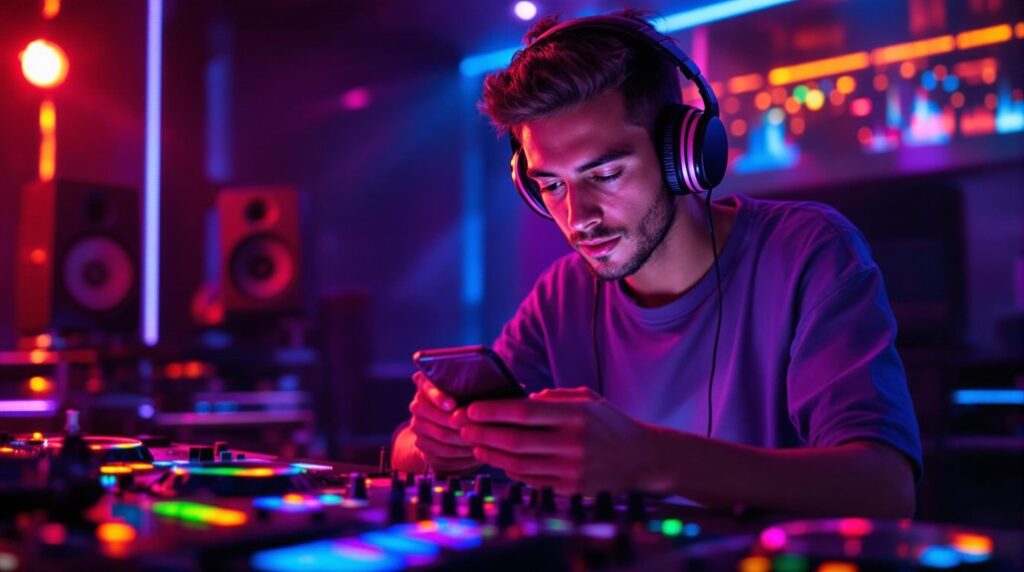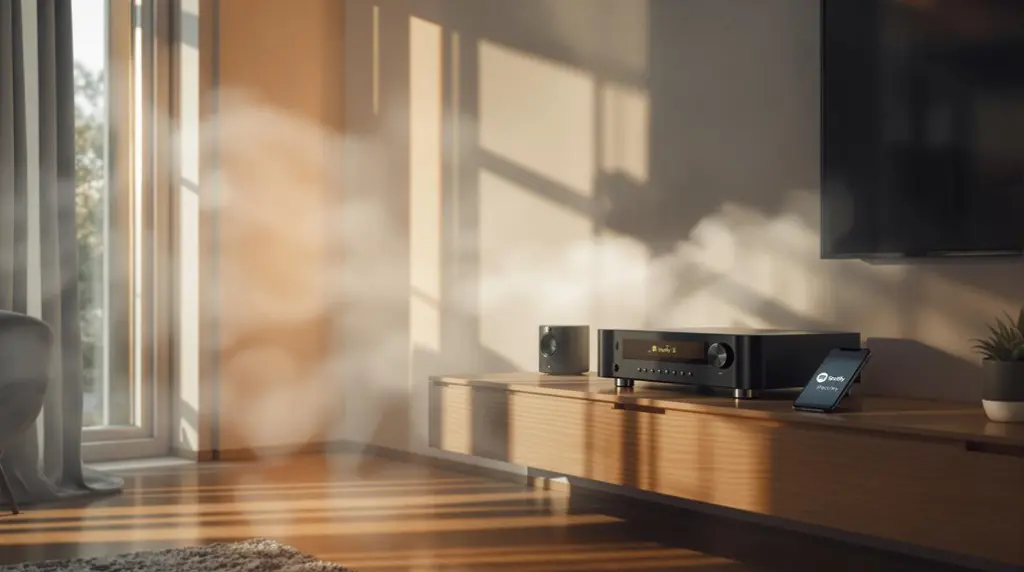To DJ music tracks legally, start by grasping the basics of copyright law. Always obtain your music from reputable sources like Beatport or Bandcamp to support artists directly. Consider joining licensed DJ pools; they’re a cost-effective way to access legal tracks and stay on trend. Make sure you’re respecting artist royalties by obtaining necessary public performance licenses through appropriate channels. Manage your music licenses effectively by tracking expiration dates and organizing documentation. Avoid illegal sharing and choose ethical sourcing to maintain professional integrity. Exploring these strategies further will set the stage for you to keep your performances on the right side of the law.
Key Takeaways
- Purchase music from reputable sources like Beatport and Bandcamp to ensure legality and artist support.
- Utilize licensed DJ pools for a legal, diverse, and cost-effective music selection.
- Secure the necessary performance licenses to legally play music publicly and ensure artists receive royalties.
- Organize and manage music licenses effectively, including tracking expiration dates and setting renewal reminders.
- Respect copyright laws by using only authorized samples and tracks in mixes and performances.
Understand Copyright Basics
To DJ legally, you must first grasp the essentials of copyright law, which stipulates that playing copyrighted music without authorization is unlawful. Understanding these basics isn’t only important to avoid penalties but also to foster respect within the music industry.
Copyright infringement consequences can be severe, ranging from hefty fines to legal actions against you. If you’re caught playing copyrighted tracks without the necessary permissions, you might find yourself facing lawsuits that could damage your reputation and drain your finances. It’s essential to recognize that while ‘fair use‘ might seem like a viable defense, it rarely holds up in cases involving DJs who distribute music without consent.
Furthermore, when it comes to music sampling, the law requires a certain degree of originality. If you sample another artist’s work, you must transform it sufficiently to qualify as a new, original piece. This doesn’t just mean tweaking the sound but creating something distinctly different that doesn’t merely replicate the original. Compliance with these originality requirements is crucial to navigate the legal landscape successfully and ensure your performances are both impressive and lawful.
Acquire Music From Legal Sources
After grasping copyright basics, you should focus on acquiring music from legal sources to guarantee your DJ performances are lawful and high-quality. Start by exploring reputable platforms such as Beatport, iTunes, Amazon Music, and Bandcamp. These platforms ensure you’re purchasing or licensing high-quality audio files that comply with copyright laws, thereby providing compliance assurance and protecting you from legal consequences.
When you buy music from these sources, you’re not only guaranteeing that your performances are legal, but you’re also supporting the artists directly. Platforms like Bandcamp are particularly effective for ethical music acquisition as they allow artists to receive a significant portion of the revenue. This direct support helps sustain artists’ careers and fosters a healthier music ecosystem.
Utilize Licensed DJ Pools
Utilizing licensed DJ pools like BPM Supreme and Digital DJ Pool, you can access exclusive remixes, edits, and tracks legally for your performances. These pools aren’t only a goldmine for unique content but also a cornerstone of DJing ethics in the music industry. By subscribing, you’re ensuring copyright compliance and supporting the artists and producers whose music you play.
Here’s why you should utilize licensed DJ pools:
- Diverse Music Selection: Cater to any crowd with a wide array of genres and styles available.
- Cost-Effective: Acquire multiple tracks at a fraction of the cost of individual purchases.
- Stay Current: Keep your sets fresh with the latest tracks and trends.
- Legal Assurance: Avoid the pitfalls of copyright infringement and potential legal issues.
As you build your DJ career, remember that using legal music sources isn’t just about adherence to the law; it’s about respecting the whole music creation process. Licensed DJ pools provide a reliable, ethical, and all-encompassing solution to sourcing music that keeps you on the right side of the music industry’s legal framework.
Respect Artist Royalties
As a DJ, you play an important role in guaranteeing artists receive their rightful royalties by securing the necessary licenses for your performances. When you spin tracks at clubs, bars, or any public venue, it’s essential to understand that each play is a public performance, legally requiring a license. By adhering to this, you not only support artist rights but also ensure fair compensation for the creators whose music sets the tone of your sets.
Artists are compensated through royalties distributed by Performing Rights Organizations (PROs) like ASCAP, BMI, and SESAC. These organizations collect fees from licensed performances and distribute them as royalties. Each track you play contributes to the livelihood of musicians and producers, emphasizing the importance of proper licensing.
Understanding the royalty distribution process is crucial. This knowledge not only helps you navigate the legal landscape of music performance but also fosters a sustainable ecosystem in the music industry. By ensuring compliance with copyright laws, you also uphold the integrity of your profession and contribute positively to the artistic community. Remember, each licensed performance is a step towards a more equitable industry, where artists are rewarded for their creativity and hard work.
Manage Music Licenses Effectively
To manage your music licenses effectively, you’ll need to grasp the various types of licenses, including performance and mechanical rights.
Keep a close eye on when each license expires to make certain you’re always operating within legal boundaries.
It’s essential to organize all your licensing documents systematically to avoid any potential legal troubles.
Understand Different License Types
Understanding the different types of music licenses is essential for legally managing your music tracks in various projects and venues. Knowing which license you need helps you avoid copyright infringement and unnecessary licensing fees.
Here’s a breakdown of the key licenses:
- Public Performance License: Required for playing music in public spaces like clubs and venues.
- Mechanical License: Needed for reproducing and distributing music, such as CDs or vinyl.
- Synchronization License: Necessary for using music in audiovisual projects like films and commercials.
- Master Use License: Grants permission to use the original recording in new projects or mixes.
Make sure you’re equipped with the right licenses to keep your performances and projects legally sound.
Track License Expiration Dates
After securing the appropriate music licenses, you’ll need to diligently track their expiration dates to maintain legal use of your tracks. Expiration date tracking is vital, as overlooking these can lead to severe legal implications. To stay on top of this, set up license renewal reminders well in advance. This proactive step guarantees you’re never caught off-guard by a lapsed license that could jeopardize your compliance with copyright laws.
Keep in mind, different licenses might’ve varied terms for usage and renewal conditions. Understanding these specifics is essential. Regular compliance checks will help you monitor these variables effectively, ensuring that your DJing practice remains within legal bounds and free from potential copyright infringements.
Organize License Documentation
Organizing your music license documentation into a central system guarantees you can quickly access and manage all necessary details with ease. Here’s how to streamline this process:
- License Renewal Reminders: Set up alerts for upcoming renewals to guarantee you don’t miss any deadlines.
- Compliance Checks: Regularly review your licenses to confirm compliance with terms and address any discrepancies.
- Secure Storage: Keep your license documentation in a secure digital repository that protects against unauthorized access.
- Document Backup: Maintain a backup in a separate, secure location to safeguard against data loss.
Avoid Illegal Music Sharing
To avoid legal pitfalls, make sure you’re not sharing copyrighted music without proper authorization. Understanding copyright education is key in grasping why these laws exist. They’re not just legal formalities; they’re ethical practices designed to make certain that artists are compensated fairly for their work. When you play music in public venues or share your mixes online, you’re legally required to have the appropriate licenses. This isn’t just about following the rules; it’s about respecting the creators and their rights.
If you’re considering using a track, first confirm whether you have the right to do so. Utilizing copyrighted material without a license for public performance is a direct violation of intellectual property rights and can result in severe legal consequences, including hefty fines and damaging lawsuits. Platforms like YouTube are vigilant in enforcing these policies, and ignorance isn’t a valid excuse in the eyes of the law.
Adopting legal music distribution practices not only supports the artists financially but also enhances your reputation as a responsible DJ who values the music industry’s ethical framework. Remember, every track played is a livelihood supported; make your choices count.
Engage With Music Legally
To guarantee you’re DJing within the bounds of the law, you must first obtain proper licenses for the tracks you plan to play.
It’s essential to respect copyright laws by using authorized sources like Beatport or Traxsource, which guarantee you have the legal rights to your music.
Obtain Proper Licenses
Getting started in the world of license compliance and legal music sourcing, it’s crucial for DJs to obtain the appropriate licenses to ensure their performances are legally compliant.
Always keep in mind that each type of license has a specific purpose:
- Performance Rights Licenses: Obtain these from organizations like ASCAP, BMI, or SESAC to play music publicly in a legal manner.
- Sync Licenses: Essential when you want to synchronize music with visual content during your events.
- Mechanical Licenses: Necessary if you’re producing and distributing copies of your DJ mixes or remixes.
- Streaming Licenses: Remember to acquire these when using music from streaming platforms in live settings.
Failure to obtain these licenses can result in serious legal consequences, such as fines and limitations on your future performances.
Respect Copyright Laws
As a DJ, you must always adhere to copyright laws to guarantee your music sets are both legal and ethical. Understanding and complying with these laws isn’t just about avoiding legal repercussions—it’s about respecting the creative efforts and rights of artists.
When you engage in legal music procurement, you’re ensuring that all artists receive their due for the work they produce. Ethical sourcing of music also reinforces your professional integrity and upholds the industry’s standards.
Use Authorized Sources
Make sure you always use authorized sources like Beatport and Traxsource to acquire high-quality electronic music tracks legally. By engaging with these platforms, you’re not only ensuring compliance with copyright laws but also supporting artists and promoting creativity.
- Purchase Tracks Legally: Opt for reputable online stores to respect artists’ rights.
- License Your Music: Always obtain necessary licenses when playing music in public venues.
- Explore Record Pools: Consider subscribing to services like BPM Supreme for exclusive content.
- Support Emerging Talent: Use platforms like SoundCloud and Bandcamp to discover and back new artists legally.
Sticking to these guidelines helps maintain the integrity of the music industry while fostering an environment where creativity can thrive.
Frequently Asked Questions
How Do DJS Avoid Copyright Infringement?
To avoid copyright infringement, you’ll need to secure licensing agreements and understand the fair use policy. Always make sure you’re legally covered when playing tracks, especially in public venues or during live performances.
Is It Legal to DJ With Beatport?
Yes, it’s legal to DJ with Beatport. Their licensing agreements cover public performance, so you’re compliant when using their tracks. Subscription benefits include access to exclusive, high-quality music that supports the artists.
Where Do Professional DJS Get Their Music?
You’ll find professional DJs sourcing their tracks from record pools and music subscriptions, alongside online stores, ensuring they have exclusive, diverse, and legal content for their electrifying sets.
How Do DJS Get Unreleased Tracks?
You’ll secure unreleased tracks through industry connections and label promotions. Engaging directly with artists or exclusive DJ pools also offers access, enhancing your music library with fresh, innovative sounds before they’re publicly available.
Conclusion
Now that you’re equipped with these essential tips, you’re ready to DJ music tracks legally. Remember, understanding copyright basics and acquiring music from legal sources are vital.
By utilizing licensed DJ pools and respecting artist royalties, you guarantee fairness in the music industry. Manage your licenses effectively and steer clear of illegal music sharing.
Engaging with music legally not only protects your career but also respects the creators’ rights. Stay informed, stay legal, and keep the beats going!




